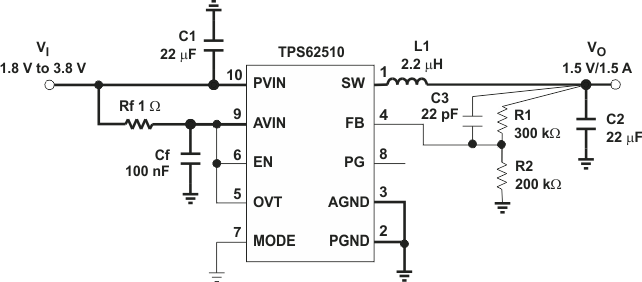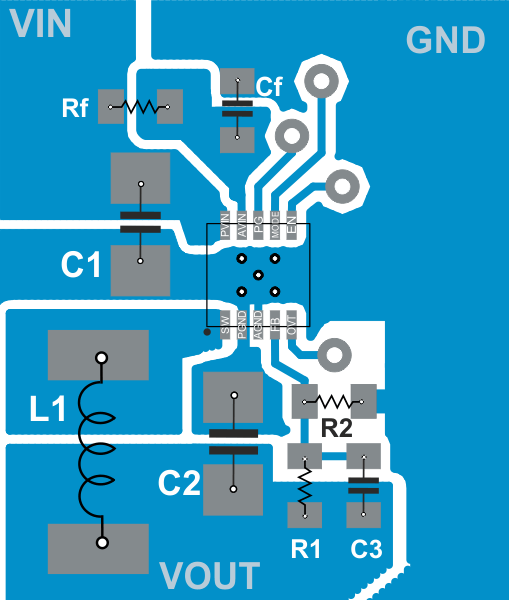SLVS651B May 2006 – December 2015 TPS62510
PRODUCTION DATA.
- 1 Features
- 2 Applications
- 3 Description
- 4 Revision History
- 5 Pin Configuration and Functions
- 6 Specifications
- 7 Detailed Description
- 8 Application and Implementation
- 9 Power Supply Recommendations
- 10Layout
- 11Device and Documentation Support
- 12Mechanical, Packaging, and Orderable Information
パッケージ・オプション
メカニカル・データ(パッケージ|ピン)
- DRC|10
サーマルパッド・メカニカル・データ
- DRC|10
発注情報
10 Layout
10.1 Layout Guidelines
- Place and route the power components first (C1, L1, C2).
- The input capacitor (C1) must be placed as close as possible from PVIN to PGND.
- The inductor must be placed as close as possible to the switch pin.
- All ground connections (shown in bold) must be on a common ground plane or form a star ground.
- Analog ground (AGND) and power ground (PGND), as well as the exposed thermal pad, must be tight together.
- The feedback network (R1, C3, R2) must be routed away from the inductor (L1) and should be grounded to the exposed thermal pad.
- The feedback network must sense and regulate the output voltage across the output capacitor to minimize load regulation.
 Figure 22. Layout Guidelines
Figure 22. Layout Guidelines
10.2 Layout Example
 Figure 23. Recommended Layout
Figure 23. Recommended Layout